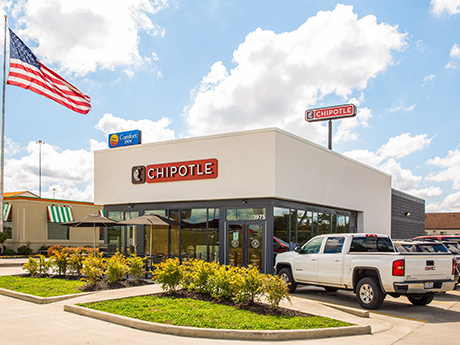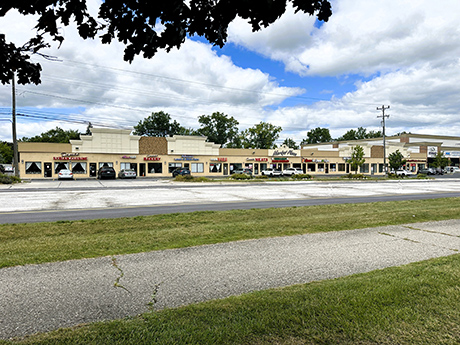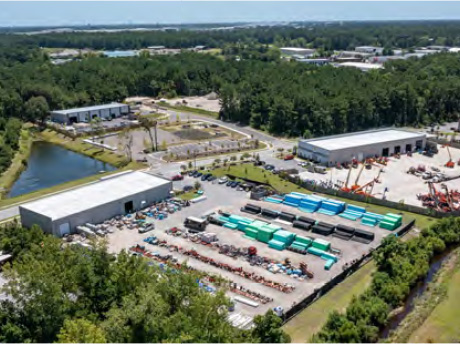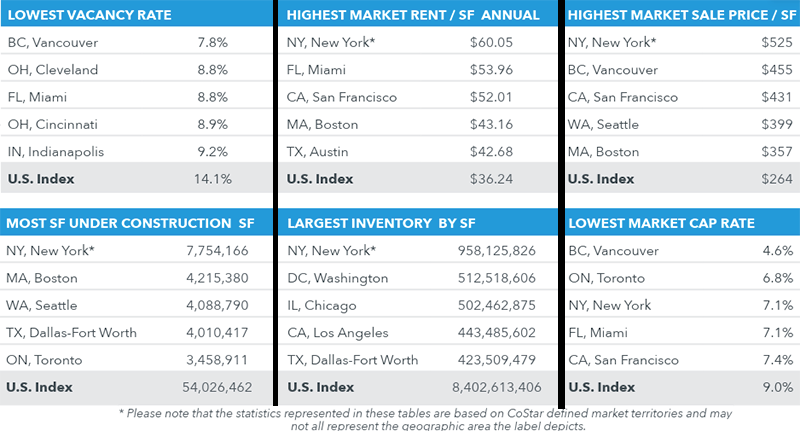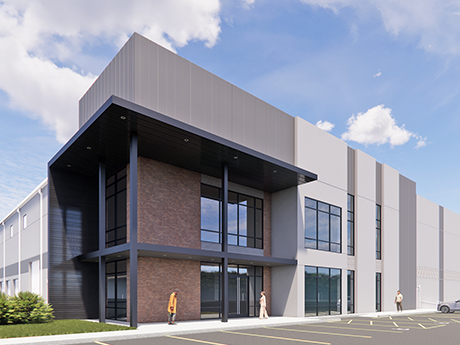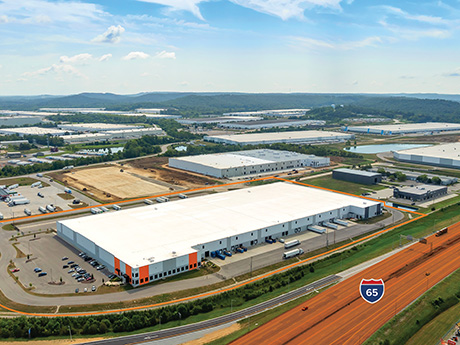ELK GROVE VILLAGE, ILL. — Entre Commercial Realty has arranged the sale of a 56,000-square-foot industrial building in Elk Grove Village. Brad Bullington and Ian Pattison of Entre represented the buyer, a machine shop completing its third acquisition within the O’Hare industrial market. Matthews Real Estate Services represented the undisclosed seller. The property features I-90 frontage, outdoor storage capabilities and also includes future parking lot replacement.
Property Type
PIQUA, OHIO — The Cooper Commercial Investment Group has brokered the sale of a newly constructed restaurant property occupied by Chipotle Mexican Grill in Piqua, a suburb of Dayton. The 15-year lease features 10 percent rental increases in years six and 11. The property includes the restaurant’s namesake drive-thru, Chipotlane, as well as patio seating. Dan Cooper of Cooper Group represented the seller, a longtime client. The asset sold to an all-cash 1031 exchange buyer from California at a 5.5 percent cap rate.
FARMINGTON HILLS, MICH. — Thai Body and Soul, a wellness center, has signed a 1,685-square-foot retail lease at Market Place Plaza in Farmington Hills. Owen Kelly and Michael Murphy of Gerdom Realty & Investment represented the undisclosed landlord. Market Place Plaza is situated on Orchard Lake Road, just south of 13 Mile Road.
NEW YORK CITY AND EL SEGUNDO, CALIF. — Brookfield Asset Management (NYSE: BAM) has entered into a definitive agreement in which one of the firm’s private real estate funds will acquire the outstanding shares of Peakstone Realty Trust (NYSE: PKST), an industrial REIT that has a strategic focus on the industrial outdoor storage (IOS) sector. The El Segundo-based company, which sold off its final office assets in December, currently owns 76 industrial properties, including 60 IOS assets. At a proposed price of $21 per share, the all-cash transaction represents an implied enterprise value of approximately $1.2 billion. The price represents a 34 percent premium relative to Peakstone’s share price on Jan. 30, the last full trading day prior to the announcement. “This transaction recognizes the value of our industrial portfolio and the progress we have made expanding our IOS platform,” says Michael Escalante, CEO of Peakstone. At the conclusion of the acquisition, Peakstone will be a privately held company and will be delisted from the New York Stock Exchange. Founded in 2009 as Griffin Realty Trust, the company was rebranded as Griffin Capital Essential Asset REIT in January 2023 and then as Peakstone Realty Trust in 2021. For Brookfield, the …
Content PartnerDevelopmentFeaturesIndustrialLeasing ActivityLee & AssociatesLoansMidwestMultifamilyNortheastOfficeRetailSoutheastTexasWestern
Q4 2025 Demand Overview: Industrial and Multifamily Slowed, Office Stabilized, Retail Held Steady
Lee & Associates’ 2025 Q4 North America Market Report looks at diverging market demand across industrial, office, retail and multifamily spaces nationwide in the last quarter. Demand continued to soften for industrial spaces, while multifamily saw a reversal: decreased demand after seven consecutive quarters of strengthening. Office saw a slow increase in net absorption, but only after six years of negative absorption; retail demand was mixed. Industrial and retail spaces contended with tariff concerns, while all four types of commercial real estate saw either decreased or slowed rent growth in the final quarter of 2025. Lee & Associates’ full, detailed market report is available to read here. The overviews for the sectors below illustrate the market landscape through data on net absorption, leasing and development activity, sales transactions and rent growth, in addition to demand. Industrial Overview: Demand Falls Under Tariff Pressure Falling demand for industrial space continued in 2025 under the added strain of the United States’ aggressive trade and tariff policies affecting commercial property markets across North America. In the United States net absorption declined again in 2025 as tenant and rent growth fell to their lowest levels since the aftermath of the financial crisis. Meanwhile, inventory growth has been scaled back …
HOUSTON — A partnership between local developer Lovett Industrial and Los Angeles-based PCCP LCC has broken ground on Southport 45, a 668,077-square-foot project in southeast Houston. Southport 45 will consist of three buildings: a 395,657-square-foot cross-dock facility, a 176,452-square-foot front-load structure and a 95,968-square-foot front-load building. Each building will feature 32- to 36-foot clear heights, 2,500 square feet of office space, dock levelers and warehouse lights. Southside Bank and American National Bank of Texas are financing construction of Southport 45, which is expected to be complete in the third quarter. Other project partners include Powers Brown Architecture, general contractor Harvey Cleary, civil engineer ALJ-Lindsey and leasing agent JLL.
SAN ANGELO, TEXAS — Self-storage brokerage firm Versal has arranged the sale of a 544-unit facility in the West Texas city of San Angelo. Lone Star Storage Center – San Angelo features 69,525 net rentable square feet of space across 334 non-climate-controlled units and 210 climate-controlled units. Bill Bellomy, Michael Johnson, Logan Foster and Hugh Horne of Versal represented the seller and procured the buyer, both of which were Texas-based limited liability companies, in the transaction.
ATASCOCITA, TEXAS — SRS Real Estate Partners has brokered the $12.5 million sale of a 42,000-square-foot retail building in Atascocita, located northeast of Houston. EōS Fitness occupies the building, which was constructed on a 4.6-acre site in 2024, on a 15-year, corporate-guaranteed lease. Patrick Luther and Matthew Mousavi of SRS represented the seller, an East Coast-based developer, in the transaction. The duo also procured the buyer, a Midwest-based private investor. Both parties requested anonymity.
FORNEY, TEXAS — EVO Entertainment will open an 82,000-square-foot entertainment venue in Forney, about 20 miles east of Dallas. The venue will feature nine theaters, 22 bowling lanes, a full-service bar and restaurant, private event spaces, an upper-level lounge area, arcade games, rock climbing walls, a ropes course, bumper cars and laser tag. The space is located within the 120-acre Village at Gateway development. Construction is underway, and the opening is slated for the fall.
SHEPHERDSVILLE, KY. — JLL Capital Markets has arranged the $50 million sale of Bullitt II Logistics Center, a 437,000-square-foot industrial warehouse and distribution facility located at 251 Buffalo Run Road in Shepherdsville, a southern suburb of Louisville in Bullitt County. Ross Bratcher, Sean Devaney, Dennis Mitchell, Kurt Sarbaugh, Powell Spears and Matt Hartlage of JLL represented the seller, Atlanta-based Core5 Industrial Partners, in the transaction. Chicago-based LaSalle Investment Management was the buyer. Situated roughly 12 miles from the UPS Worldport, Bullitt II Logistics Center is fully leased to a subsidiary of Dorman Products, an American supplier and manufacturer of aftermarket automotive replacement parts. The cross-dock facility was delivered in 2022 and features 36-foot clear heights, fully circulating truck courts with up to 185-foot depths, 50 dock doors, 63 designated trailer parking spaces and more than 14,000 square feet of office space.


